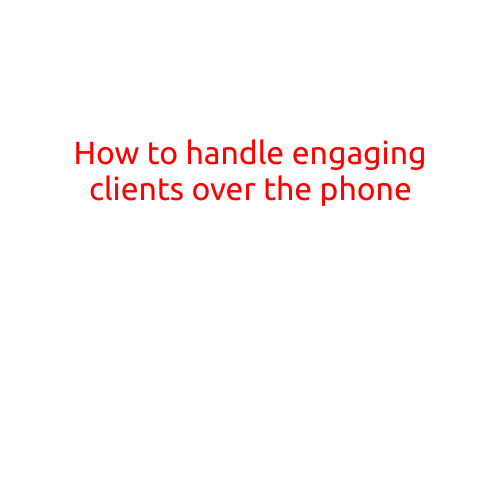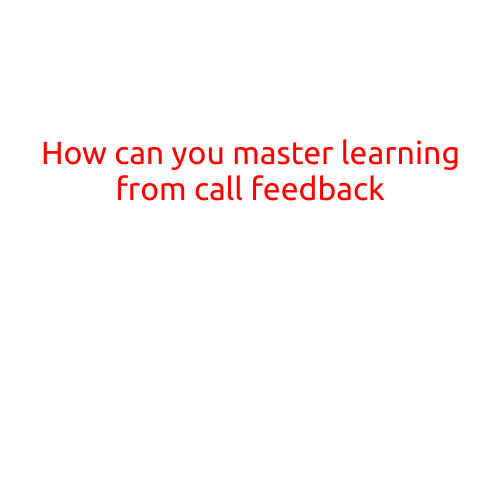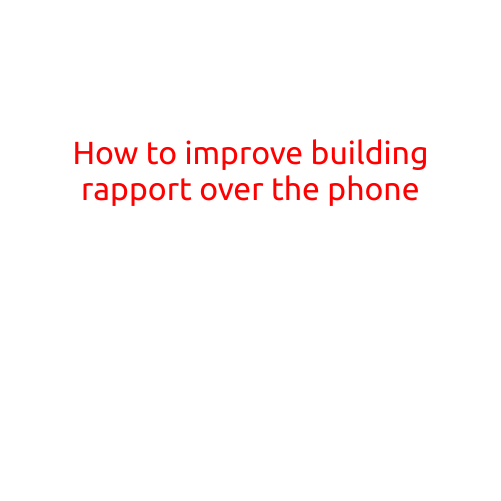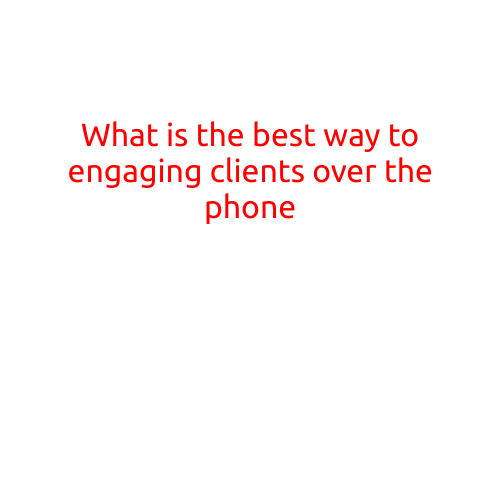
How to Handle Engaging Clients Over the Phone
Handling client calls is a crucial part of any business, and being able to engage with them effectively can make all the difference in building trust, rapport, and ultimately, closing deals. But what does it take to be an effective phone-based client handler? In this article, we’ll explore some essential tips and strategies to help you handle engaging clients over the phone.
Prepare for the Call
Before anyone even picks up the phone, preparation is key. Make sure you:
- Research the client: Familiarize yourself with their organization, goals, and previous interactions to better understand their needs and concerns.
- Review relevant documentation: Have all necessary documents, such as contracts and receipts, easily accessible to ensure you’re prepared to answer questions.
- Manage your workspace: Ensure a quiet, distraction-free workspace and have all necessary materials within arm’s reach.
Use Active Listening
Active listening is critical when handling client calls. Make sure you:
- Maintain eye contact (even if you’re not in person): Even through a phone call, maintaining eye contact can help you stay focused and attentive.
- Focus on the client: Put away distractions and minimize multitasking to ensure you’re fully engaged in the conversation.
- Repeat back what you’ve heard: Paraphrase and summarize the client’s concerns to ensure understanding and show that you’re actively listening.
Ask Open-Ended Questions
Open-ended questions encourage clients to share more information, allowing you to better understand their needs and concerns. When asking questions:
- Avoid leading questions: Phrase your questions in a neutral way to avoid influencing the client’s response.
- Encourage detailed responses: Ask follow-up questions to delve deeper into the client’s concerns.
- Use clear and concise language: Avoid jargon or technical terms that might confuse the client.
Show Empathy and Understanding
Demonstrating empathy and understanding can help build trust with clients. When responding:
- Acknowledge their concerns: Validate the client’s feelings and show that you’re taking their concerns seriously.
- Show understanding: Use phrases like “I can appreciate how you feel” or “That sounds like a challenging situation.”
- Offer solutions: Provide options and alternatives to help alleviate the client’s concerns.
Keep the Conversation Focused
To stay on track and keep the conversation productive:
- Take notes: Write down key points and action items to ensure you remember important details.
- Keep the tone professional: Avoid humor or jokes unless you’re sure the client will appreciate them.
- Stay patient and calm: Avoid getting defensive or flustered, even in tense situations.
Follow Up
After the call:
- Send a summary: Email or send a follow-up note summarizing the discussion and agreed-upon next steps.
- Follow up on action items: Ensure that any agreed-upon tasks are completed and follow up with the client to confirm completion.
- Evaluate the call: Reflect on the call and identify areas for improvement for future interactions.
By implementing these strategies, you’ll be better equipped to handle engaging clients over the phone. Remember to always prioritize active listening, empathy, and understanding, and don’t hesitate to ask follow-up questions to ensure you’re meeting the client’s needs. With practice, you’ll become a confident and effective phone-based client handler.





